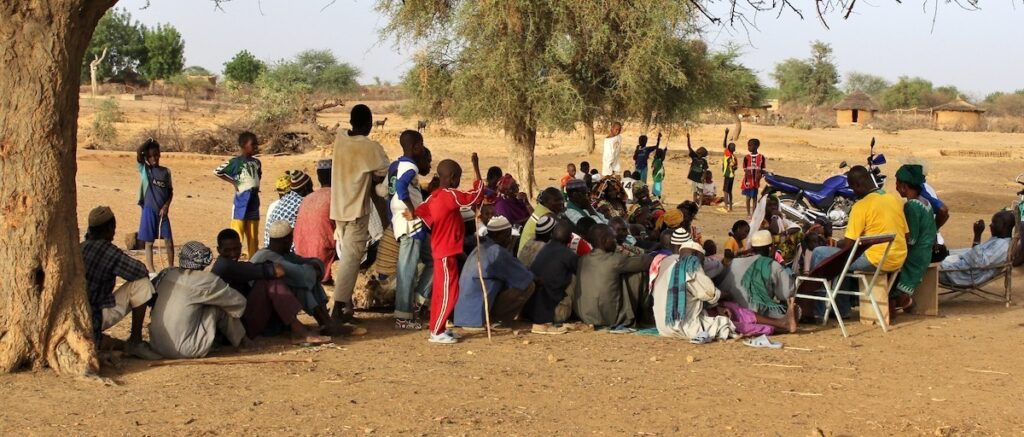
Mauritania’s strategy of preventing radicalisation drastically reduced youth recruitment by terrorists and helped prevent attacks since 2011.
If a decade of military operations hasn’t resolved the disastrous security crisis in the Sahel, could talking to the jihadists help bring peace? Dialogue isn’t a new idea, but Western partners have long opposed it, especially France. As their influence declines, the notion is becoming less taboo.
On 25 February, Nigerien President Mohamed Bazoum announced that he had released nine ‘terrorists’ to open up dialogue with their groups. He’s not the first leader in the region to explore this option. Mali’s former prime minister Moctar Ouane and late president Ibrahim Boubacar Keïta looked into it, as did Burkina Faso’s former prime minister Christophe Dabiré.
In Mali, successive national debates have reached some consensus, at least since 2017, on the need for dialogue with jihadists. In December 2021, talks were announced but later denied. A few months earlier, discreet negotiations with violent extremists had temporarily eased pressure on the town of Djibo in Burkina Faso.
In early February 2022, a peace conference in Nouakchott, attended by the heads of state of Mauritania and Niger, aimed to involve traditional and religious leaders to discuss tackling violent extremism. Mauritania’s commitment to promoting this approach is based on its experience, which could inspire other Sahelian nations.
In 2010, Mauritanian religious dignitaries reached consensus on the non-violent ideal of jihad
At the end of 2009, after several years of deadly terrorist attacks and limited results from military responses, Mauritania’s authorities decided to tackle the causes of religious radicalisation. They engaged in ideological dialogue with 70 jihadist detainees to unpack the reasons for their radicalisation and reintegrate them back into society. The aim was also to discourage others from joining violent extremist groups.
Starting in January 2010, two weeks of debates were led by respected and recognised religious dignitaries commissioned by Mauritania’s government. Consensus was reached on the non-violent ideal of jihad. As a result of these discussions, 47 (67%) of the detainees committed to laying down their arms and renouncing extremist ideas. They received presidential pardons or reduced sentences and access to grants to help them reintegrate economically and socially.
However, at least three of the 47 did take up arms again. Two died in military operations, and the third, Cheikh Brahim Ould Hamoud, was arrested in 2019. He was freed again in October 2020 as part of the deal to release hostages Sophie Petronin and Soumaïla Cissé.
The dialogue also had a broader societal aim of stopping Salafi jihadism from taking root in the country. This ideology – which advocates violence to impose a purist form of Islam – was already influencing many students in Mauritanian Koranic schools, known as mahdharas.
Ideological debate alone will not be enough; it must form part of a broader dialogue strategy
Mauritania’s strategy of preventing radicalisation also included vocational training for ‘repentants’ and mahdharas students to help them enter the labour market. This has drastically reduced the recruitment of young people into jihadist groups and contributed to the successful multidimensional approach that has prevented attacks since 2011.
At a time when the possibility of dialogue is being revived in the Sahel, Mauritania’s experience offers important lessons on the options available and their implications.
First, while dialogue with detainees quelled Mauritania’s emerging crisis, it may not be enough in central Sahel, which is home to several groups and has much higher levels of violence. For it to work there, dialogue will need to extend to leaders, active fighters and individuals associated with violent extremist groups – both men and women.
Second, although ideological dialogue can deradicalise jihadists who joined for religious reasons, its effectiveness may be limited in the face of other incentives. Research by the Institute for Security Studies shows that religious conviction is not the only motivation for joining violent extremist groups in the Sahel.
Many join to protect themselves, their families or their livelihoods or to retaliate against abuses by the national armed forces. These motives often reflect frustrations about social injustice, a lack of opportunities and poor access to basic services such as water, education and health. They are compounded by serious deficits in government security services and justice systems.
For Sahelian states, dialogue with jihadists requires a coordinated regional approach
Ideological debate can be useful, but it must be part of a broader dialogue strategy that addresses other reasons for joining jihadist groups – including social, security, economic and political factors.
Jihadists also have diverse profiles and motivations, which means that various types of interactions will be needed. Decision makers and foot soldiers may have different reasons for being in the group, so approaches must be tailored.
Mauritania has focused on supporting jihadists’ return to civilian life. To consolidate the progress made through dialogue, words must be followed by action to provide those who leave with viable opportunities to return to a normal, productive life. These measures should form part of a prevention approach aimed at population segments targeted for recruitment into extremist groups.
Finally, Mauritania’s lessons also include some downsides to negotiated peace. In some cases, fighters who returned to violence after the ideological dialogue moved into neighbouring countries. For Sahelian states, this means that talks with jihadists require a coordinated approach, to avoid a displacement effect that could shift the terrorism problem around the region.
This is a considerable challenge, especially since each country limits the offer of dialogue to its citizens, and policy decisions are made in response to unique national dynamics.
